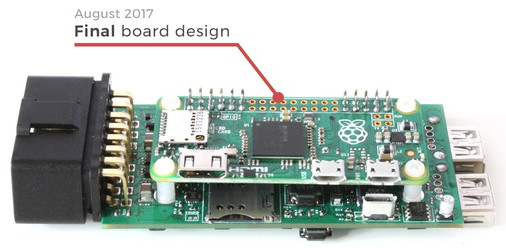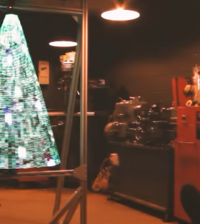- makeITcircular 2024 content launched – Part of Maker Faire Rome 2024Posted 2 weeks ago
- Application For Maker Faire Rome 2024: Deadline June 20thPosted 2 months ago
- Building a 3D Digital Clock with ArduinoPosted 7 months ago
- Creating a controller for Minecraft with realistic body movements using ArduinoPosted 7 months ago
- Snowflake with ArduinoPosted 8 months ago
- Holographic Christmas TreePosted 8 months ago
- Segstick: Build Your Own Self-Balancing Vehicle in Just 2 Days with ArduinoPosted 8 months ago
- ZSWatch: An Open-Source Smartwatch Project Based on the Zephyr Operating SystemPosted 9 months ago
- What is IoT and which devices to usePosted 9 months ago
- Maker Faire Rome Unveils Thrilling “Padel Smash Future” Pavilion for Sports EnthusiastsPosted 10 months ago
AutoPi, The Open Source Platform to “Improve” Your Car

A Danish startup called AutoPi.io has gone to Kickstarter to launch a Raspberry Pi Zero W based AutoPi dongle that plugs into the same OBD-II port that automotive repair people use to run diagnostics and tap other telematics features.
AutoPi.io intends to establish the AutoPi and its associated cloud service as an affordable, open platform for DIY types to create automotive applications including voice recognition, remote start, auto door lock and unlock, crash and theft detection, eco-drive optimization, mobile hotspot, traffic monitoring, and even touchscreen HUD devices and parking assistance gizmos.
The Linux-driven AutoPi is built around the WiFi and Bluetooth enabled, 1GHZ ARM11-based Raspberry Pi Zero W. The add-on board that attaches to the Zero W includes a secure OBD module with power management, an accelerometer, speakers, GPIO pins, two USB host ports, and a mini-HDMI port.
AutoPi is available in three different versions:
– Wifi only for $197
– Wifi + 4G/LTE radio with micro-SIM slot and a GPS chip for $261
– DIY version for $98. It consists of a simplified AutoPi HAT board that works with the Raspberry Pi 3. This model lacks 4G, GPS, speaker, cable, and speakers. The HAT adapter also lacks WiFi, BT, and the USB and HDMI ports, but these are provided by the RPi 3.
The development platform, which lives on an AutoPi Cloud service, includes a customizable dashboard, REST based APIs, and the ability to run commands from a live terminal. Although the development platform is open, there are no specific claims here for open source hardware.

















One Comment